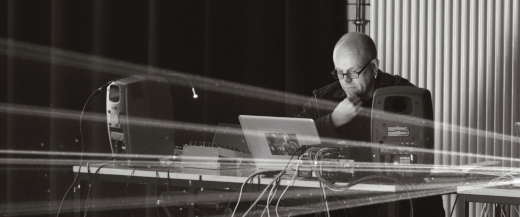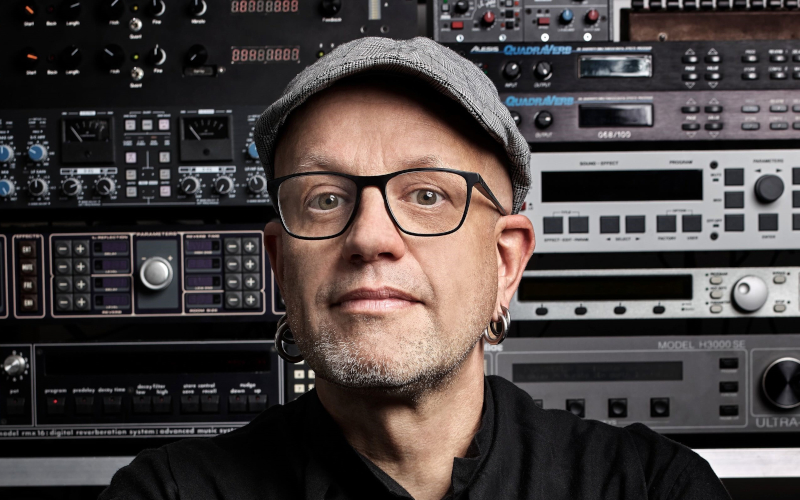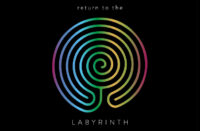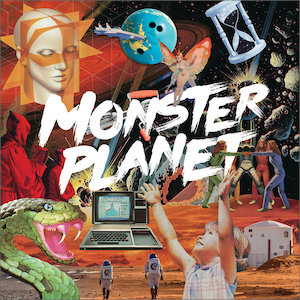
That’s absolutely brilliant when you put it like that. Someone like Da Vinci is the most well-known example, but he did a billion different things. Was it all creative? Maybe? I don’t know! The guy created one of the most important paintings of human history (Mona Lisa) and all these technical designs that we’re finding out today can actually work! This is such a breakthrough concept for me. My friend Robert Logan is an amazing musician and composer and we’ve been talking about this idea a lot. I will share this with him because I know like me it will help because often we’ll message the other while underneath a desk or keyboard rack trying to find out why a MIDI cable isn’t doing what it’s supposed to, and we’re complaining about having to be mechanical engineers not musicians. Because I have dyscalculia (a learning disorder that affects a person’s ability to understand number-based information and math) I don’t exactly understand numerical, sequential logic as easily as others do. Or at least I thought so for a long time. However, of course I do because as a musician I’m dealing with these machines and software like you said on a daily basis, thinking, “Okay, I have four beats to a measure but yesterday, I was trying to work out something in 5/4 time so I have to add a beat in there.” So I’m better at math than I think? Maybe not but I use it more easily than I do.
RH :: Yes, exactly.
Well that’s a brilliant concept I’m going to be thinking about for a while. Now, here’s a question I’ll pose to you: is music a problem to be solved? Or what is music to you?
RH :: You ask such deep questions, man.
(LAUGHS) Hey, I have to!
RH :: The short answer is no. Unsurprisingly. I don’t think I can speak for anyone apart from myself. But for me personally, it is an artistic expression that is necessary for me to feel comfortable. So if I spend too much time without doing something like this, I feel something is missing. It helps me to calm down. It helps me to maybe also cope with things. But it’s also simply a generator of joy. Yes, it provides satisfaction. Now sitting somewhere and suddenly sounds emerge and structures emerge. It makes me happy.
Yeah, me too.
RH :: Maybe you can even compare it (to something else). There’s another thing that I’m very fond of. I love cacti. I have the luxury that I have a small terrace, and it’s full of cacti. What I’m doing is I spend a lot of time every day looking at my cacti and pulling out the little weeds and turning them and seeing if they flower or if they have some little inhabitants that they shouldn’t have. It’s a very Zen occupation. I walk around them and I observe them. In some way, I feel my way of making music is similar because I have these machines. Very often music making is not actually playing but music making. I set up a process, and here’s my sequencer and here’s my Max patch, and I listen to it, and then I step a little bit back, and then I change something, and then I step back. Sometimes when making music, I also enjoy leaving the room for a while, and then coming back and listening to it again, and feeling how my emotional state reflects back to what I just did.
Most musicians I know talk about how they started the music for them. The songs or they write their music primarily for themselves. But when you describe your cacti and your process, it’s heartening for me because someone like you who’s successful and respected in this field who does that. I’m a firm believer in tenets from Dadaism and Surrealism, about absorbing information diagonally and not head on so you get it in a different way or with divination, things like that. But like you said about the philomath or engineering, it’s fascinating to see that your approach is not as straightforward as one thinks. You’re clearly somebody who draws from a diverse array of backgrounds and information and knowledge to create what you do. I’m not stating anything new but on the other hand it is interesting to really see that in action as you’re speaking. Oh, I wanted to ask how your hearing was with regards to your tinnitus? I say that as a fellow sufferer.
RH :: Actually, I had good luck because it’s almost gone for some strange reason So the ringing is gone. My hearing as far as listening to high frequencies is not good anymore. It’s occasionally frustrating, but it seems to be good enough because I guess it sounds okay. I had a shocking experience on an album I made 10 years ago. There’s one track which has a very high pitch sound, and I can’t hear that anymore. It’s just not there. It’s gone. It’s completely gone. That’s a sign like, okay, I’m getting older. I have some weird distortions sometimes, but it’s like all the other things that happen when you get older, you get used to the fact that your body changes. But at the same time I’ve never felt more comfortable in my studio. I also never felt more comfortable in my body. It’s okay. I’m doing fine. I’m in a mental state where I can do things that I like to do.
Which is no small feat, considering what the planet has been through the last five years. Now speaking of hearing, do you listen to contemporary electronic music?
RH :: Not a lot. In general, I suffer from something that is also not too uncommon, but most people don’t admit it. I have my selection of records that were influential to me and that I still love. I’m listening to things that I’ve been listening to over the past 40 years.
Oh me, too.
RH :: But what I do very deliberately is I go to concerts. I listen to things that I feel I should know because I feel there’s a professional necessity. And sometimes I’m surprised and think, “Wow, this is awesome!” Sometimes I feel like, if the whole world is talking about Taylor Swift, I need to listen to at least a few things. So to get an idea what’s it about. And actually there’s some sound design stuff in it where I would say, okay, that’s good stuff. Or I tremendously enjoy 90% of what Billie Eilish is doing and her brother.
Oh, yeah, they’re amazing.
RH :: It’s absolutely stunning music, and I try to stay on top of it. I don’t listen to a lot of electronica these days because I might sound a little bit arrogant, but most of it is just too generic to my taste.
I don’t think that’s arrogant at all. Unfortunately, it’s a sign of the times. It reminds me that earlier when we were talking about AI and I remembered one of my favorite jokes: Everyone knows the first book printed was the Gutenberg Bible. Do you know what the second book was?
RH :: No, what was it?
Gutenberg’s “On the Death of the Publishing Industry.”
RH :: LAUGHS
So when I hear people complaining about kids these days I’m like, “You’re not fucking listening.” I don’t just say that because I have a 25-year-old but I played a show and I was one of the oldest people there, me, my friend Jay and the guy who owned the venue I think. But The Apohadion is a little hole in the wall and a really beautiful place. Anyway I’m one of three oldest people there. And some of the acts were rehashing old electronica ideas I’d heard in ’94 that were redone from what someone else heard in ’84. But others were just coming up and destroying the stage doing something wholly new and different. I turned to my friend Jay as I saw this woman play — her name is xpltiv — and I admit I was a little dismissive and said, “Oh, the children are doing gabber again.”
RH :: Then five minutes later…
Five minutes later I’m like, “I am going to shave my head and devote my life to following this person around because she’s brilliant!”
RH :: Absolutely. This is one thing where I have the luxury that since Susanna is DJing, she’s always listening to what exactly these people are doing. She’s listening to what these 25-year-old kids are producing. Sometimes she’s playing stuff to me and I think, “What? How is this done? Or, “This is so cool.” I completely get how it’s made, but I would have never come up with the idea.
Right, exactly.
RH :: You didn’t ask this question but I’m not in any way pessimistic as far as the evolution of electronic music is concerned. There’s always people pushing it and always people who turn the genres upside down. It will happen. It will not disappear. It’s just not that likely that this will happen from the people who are already known. There will be some kids we have no clue about that come out of the room.
Very true. I was part of a very heated exchange recently that’s very relevant to our discussion and I’ll ask you the question that was getting everyone all “heated up”: What difference is there between a “live” or “studio” album in these days of us having entire studios on our devices let alone our laptops vs. the 1980s for example where even with the DIY spirit there remained a higher barrier to getting into a recording studio?
RH :: Well, Studio is the result of a lot of editing on a timeline. It is closer to sculpting than to playing in this regard. A live performance for me implies that there is a certain simplicity and playability in the approach. A live scenario for me typically starts with defining some sort of instrument and then creating the music as a result of that. The studio album is using all the existing technology without considering any real time interaction in the process.
Is that because it’s made in a studio, compiled in private or can a studio album be live?













![Pole :: Tempus Remixes (Mute) — [concise]](https://igloomag.com/wp/wp-content/uploads/2025/04/pole-tempus-remixes_feat-75x75.jpg)






![Hasbeen :: Bunker Symphonies II (Clean Error) — [concise]](https://igloomag.com/wp/wp-content/uploads/2025/04/hasbeen-bunker-symphonies-ii_feat-75x75.jpg)

